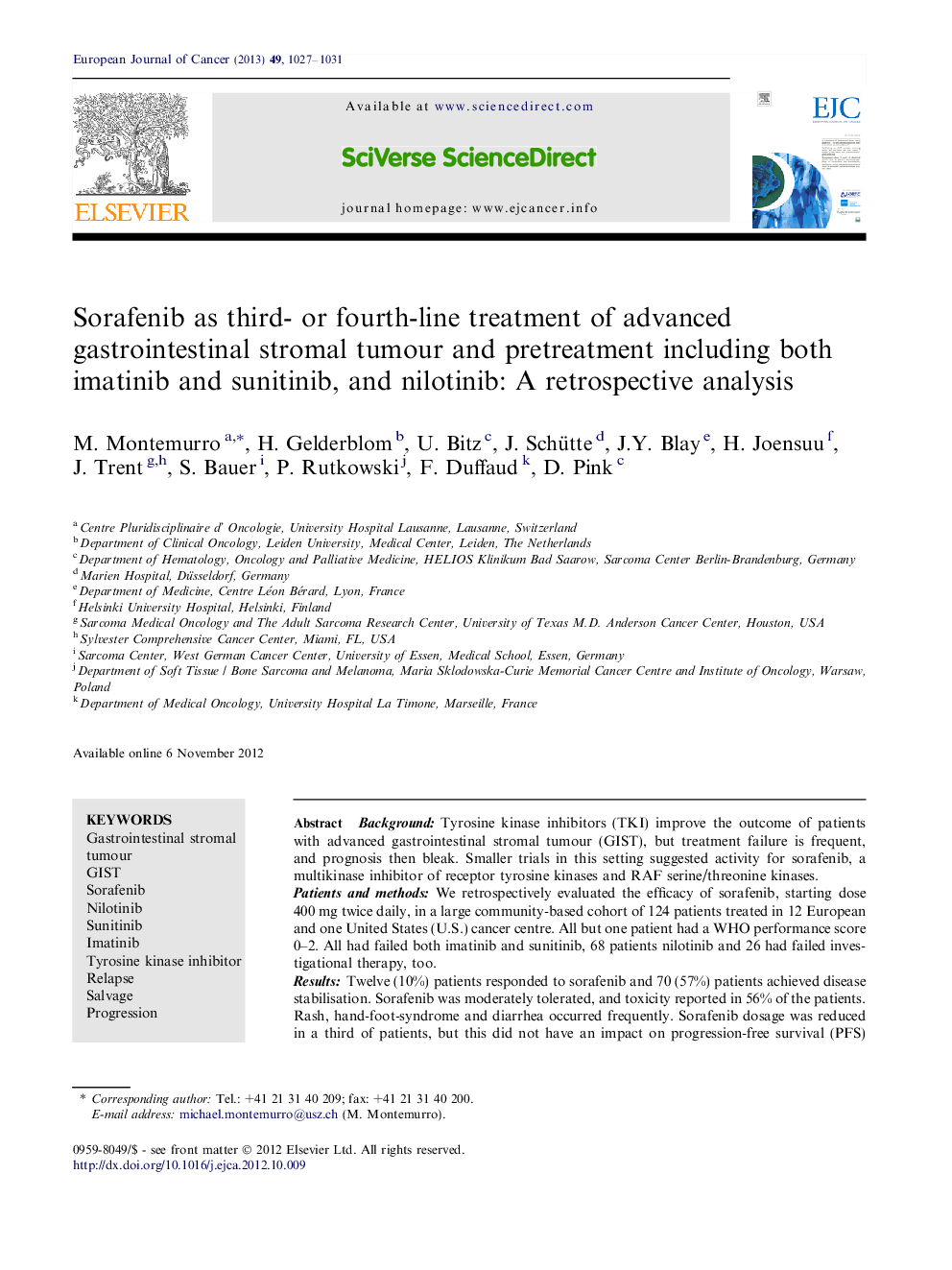| Article ID | Journal | Published Year | Pages | File Type |
|---|---|---|---|---|
| 2122910 | European Journal of Cancer | 2013 | 5 Pages |
BackgroundTyrosine kinase inhibitors (TKI) improve the outcome of patients with advanced gastrointestinal stromal tumour (GIST), but treatment failure is frequent, and prognosis then bleak. Smaller trials in this setting suggested activity for sorafenib, a multikinase inhibitor of receptor tyrosine kinases and RAF serine/threonine kinases.Patients and methodsWe retrospectively evaluated the efficacy of sorafenib, starting dose 400 mg twice daily, in a large community-based cohort of 124 patients treated in 12 European and one United States (U.S.) cancer centre. All but one patient had a WHO performance score 0–2. All had failed both imatinib and sunitinib, 68 patients nilotinib and 26 had failed investigational therapy, too.ResultsTwelve (10%) patients responded to sorafenib and 70 (57%) patients achieved disease stabilisation. Sorafenib was moderately tolerated, and toxicity reported in 56% of the patients. Rash, hand-foot-syndrome and diarrhea occurred frequently. Sorafenib dosage was reduced in a third of patients, but this did not have an impact on progression-free survival (PFS) (p = 0.15). Median PFS was 6.4 months (95% confidence interval [CI], 4.6–8.0 months) and median overall survival (OS) 13.5 months (95% CI, 10.0–21.0 months). Patients with a good performance status and those who responded to sorafenib had a significant better PFS.ConclusionWe conclude that sorafenib is active in GIST resistant to imatinib, sunitinib and nilotinib. These results warrant further investigation of sorafenib or similar molecules in GIST.
